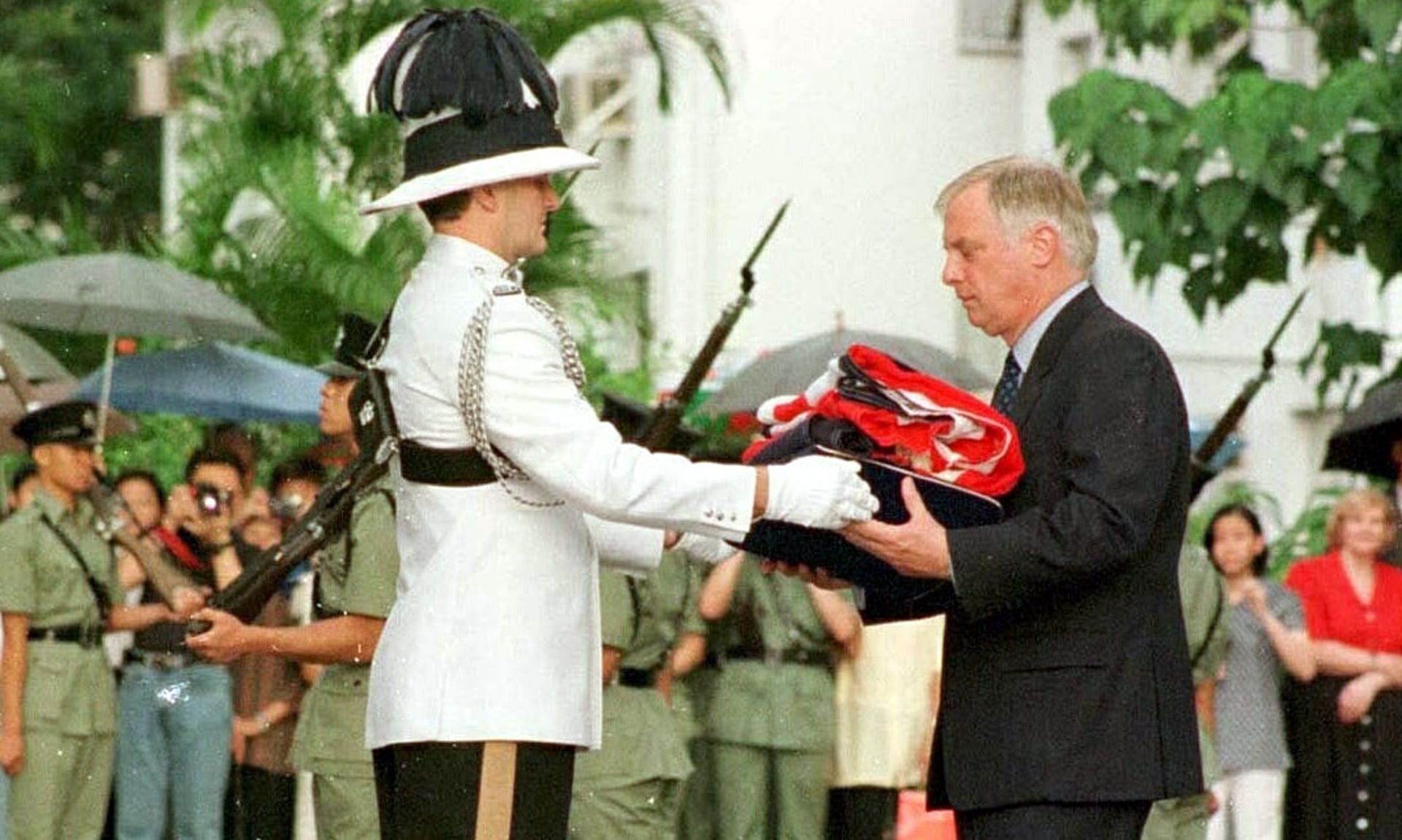By Patrick Wintour
Chris Patten receives the union flag after it was lowered for the last time in Hong Kong on 30 June 1997.
Chris Patten, the last British governor of Hong Kong, has warned that China’s threat to overrule the Hong Kong judiciary represents a dramatic threat to the autonomy of the region and may damage its chances of remaining a thriving financial centre.
Patten called on the British government to speak out as soon as possible to express its concern at the Chinese remarks, which followed the overturning by Hong Kong courts of a ban on protesters wearing face masks, a move that infuriated Beijing.
China claimed that the compliance of Hong Kong’s laws with the Basic Law governing relations between Hong Kong and China could only be judged and decided by China’s Congress.
A spokesman for the National People’s Congress (NPC) legislative affairs commission said: “No other authority has the right to make judgments and decisions.”
Patten said in a letter to the foreign secretary, Dominic Raab: “The Chinese statement was in complete breach of the Sino-British joint declaration, which states that: ‘The Hong Kong special administrative region will be vested with executive, legislative and independent judicial power, including that of final adjudication.’”
The declaration was partly negotiated by Patten.
He added: “The NPC’s statement could seriously undermine judicial independence and the rule of law in Hong Kong.“If the rule of law and autonomy are threatened, Hong Kong’s success as one of the world’s most important international financial and trading centres is at risk.”
Patten pointed out that in 1996, a year before the handover, the then prime minister, Sir John Major, had said that “if there were any suggestion of a breach of the joint declaration, we would have a duty to pursue every legal and other avenue available to us”.
The former foreign secretary Sir Malcolm Rifkind also warned that the NPC statement was “a naked power grab by the central government from the Hong Kong judiciary, and is clearly in breach of both existing Hong Kong case law and the terms of the Sino-British joint declaration”.The British protests came as Republicans in Washington predicted that Donald Trump would sign a bill passed by Congress this week that could open the way to fresh sanctions by the US against China.
Patten pointed out that in 1996, a year before the handover, the then prime minister, Sir John Major, had said that “if there were any suggestion of a breach of the joint declaration, we would have a duty to pursue every legal and other avenue available to us”.
The former foreign secretary Sir Malcolm Rifkind also warned that the NPC statement was “a naked power grab by the central government from the Hong Kong judiciary, and is clearly in breach of both existing Hong Kong case law and the terms of the Sino-British joint declaration”.The British protests came as Republicans in Washington predicted that Donald Trump would sign a bill passed by Congress this week that could open the way to fresh sanctions by the US against China.

Aucun commentaire:
Enregistrer un commentaire